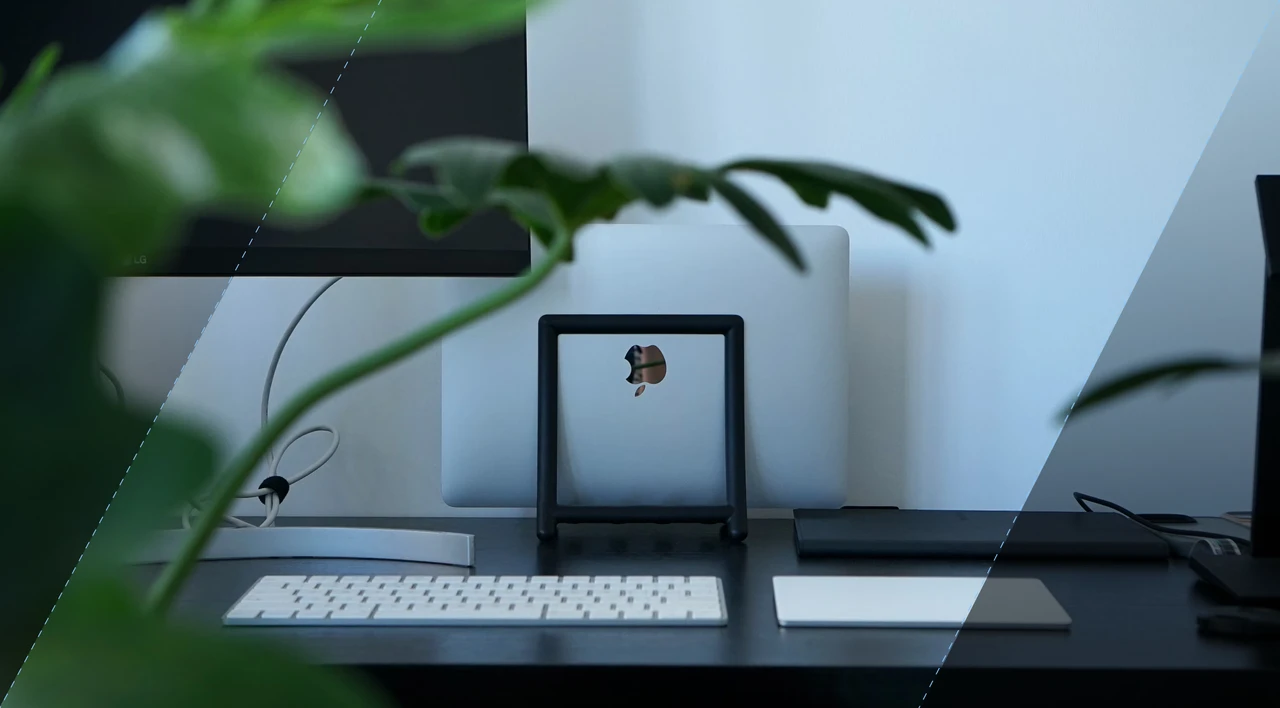SHARE
What You Need to Succeed as a Woman Founder

Candice Georgiadis, Authority Magazine, interviews Rosina Bosco, Co-Founder and Chief Creative Officer of Flatirons.
This article first appeared in Authority Magazine.
As a part of our series about “Why We Need More Women Founders”, I had the pleasure of interviewing Rosina Bosco.
Rosina Bosco is the Co-Founder and Chief Creative Officer of Flatirons, a design-forward product development agency focused on helping startups reach the next level of their business. Rosina has spent the last 15 years as a professional in New York City, leading product design for various startups, as well as The New York Times and The Knot (XO Group). Rosina’s passion lies in design strategy, bringing web and mobile products through every phase of the development process from idea/conception to release and iteration.
Thank you so much for doing this with us! Before we dig in, our readers would like to get to know you a bit more. Can you tell us a bit about your “backstory”? What led you to this particular career path?
Since I was a child, I’ve always leaned more on the creative side of my brain — both of my parents were ceramic artists when they met, and the fine arts run deep through my family. My entry point into the professional world was through graphic design. It wasn’t until my early twenties, however, that I got heavily involved in UX and UI design. After getting my MFA in Design Entrepreneurship in New York City, I moved towards user-consuming web and mobile products, obsessing over the beauty, complexity, and detail that can be involved in software applications and the people who use them. I spent the next several years hustling at startups and some larger organizations like The New York Times and The Knot (XO Group). Starting my own company was always something I knew I wanted to do, and about 15 years into my professional career I felt ready to take the leap. To this day, I still enjoy building meaningful software products that solve real user problems, but I have evolved over time and also find equal enjoyment in helping others share and grow in this passion. Starting your own company comes with its own hurdles (many of which we’ll talk about in this article), but I’ve never felt more professionally satisfied and challenged in my life.
Can you share the most interesting story that happened to you since you began leading your company?
Frankly, this isn’t a happy story; it’s about the first and only client I’ve ever fired. It was very early on in the start of Flatirons, and I had been working with this client for several months and had established (what I believed to be) a good rapport between us. He was a little on the unprofessional side, but it didn’t bother me until that unprofessionalism was directed at me personally. We were on a call together when he turned quite hostile — before I knew it, I was defending my integrity as a designer and my values as a business owner. His derogatory tone insulted me as a female professional, and he fired accusations that would have never been directed at my male counterpart, let alone said if my male partner were also on the call. I diplomatically let the client know that our working relationship was over, and vowed to never let anyone speak to me in a derogatory manner ever again.
I learned an important lesson that day.
As a female business owner, I was going to need thicker skin and a take-no-bs attitude if I expected to keep on going. That call made me realize that I am my own front line of defense when protecting my company and my reputation. No one else is going to swoop in and defend me or save me. It’s imperative to set the precedent that as a female professional, you expect to be treated with the same deference and respect as any male counterpart.
There’s no question about this. Anyone who doesn’t respect women in this way is not someone I’m interested in working with.
Can you share a story about the funniest mistake you made when you were first starting? Can you tell us what lesson you learned from that?
The most rookie mistakes I used to make were saying YES to every opportunity that came my way. In the beginning, I tried to be open to anything and everything. As a business owner, I figured that any opportunity that crossed my path would either help my business grow, or I’d learn from my mistakes and course-correct next time. I used to take on every project I possibly could, even when I could barely handle the workload myself. I would endure nasty clients and projects that didn’t play to my strengths. I had no filter. Over time, I’ve learned that more clients doesn’t equal quality projects. I’ve also learned that sometimes the money isn’t worth it. It has taken me time to prioritize the beautiful parts of my life (my family, friends, the clients I enjoy working with, etc). Life is too short to accommodate every person at the expense of the principles you believe in.
None of us are able to achieve success without some help along the way. Is there a particular person who you are grateful towards who helped get you to where you are? Can you share a story about that?
I wouldn’t have started my business if it hadn’t been for my co-founder (and husband), Michael Frederick. Mike and I met while we were both working for a startup called Gust in New York City and we clicked immediately, both personally and professionally. We work really well together and balance each other out — he has the technical, strategic brain, and I have the creative, empathic brain. We both shared the desire to run our own business, and eventually took the leap together. Three years later, our business has grown to a 30-person company co-located in Baranquilla, Colombia, and Boulder, Colorado. Our team is truly an extension of our family and we couldn’t imagine charting these waters without them.
Besides Mike, it’s really been my fellow female founders that keep me going. I have had the honor of working with some incredibly devoted, intelligent female entrepreneurs who remind me why I get out of bed every morning. Helping them build successful products is truly the way I’d prefer to spend my day.
Ok, thank you for that. Let’s now jump to the primary focus of our interview. According to this EY report, only about 20 percent of funded companies have women founders. This reflects great historical progress, but it also shows that more work still has to be done to empower women to create companies. In your opinion and experience what is currently holding back women from founding companies?
I think this is a larger issue and goes back to how we raise our girls, portray women in the media, and the societal pressures placed on women in general. I’m speaking in very generic terms here, because of course there are many exceptions, but men are raised to be confident. They are told over and over, starting at a young age, that their opinion matters, and that boldness and even loudness equate to strength and power. There is never a question about whether a man can have a family and a successful career. In fact, it’s often believed that the image of a “perfect” family helps a man become more successful.
The opposite is true of women. We are raised with politeness, kindness, empathy, and quietness being taught as our main virtues. And not to say these are bad values, because I don’t believe they are, but they also have their own place, and sometimes that conflicts with being a successful business leader. If a woman breaks from these virtues, she’s thought off as too demanding, called a B — — or worse. This can make women afraid to take on leadership characteristics (paramount when starting your own business), and if they do, can make others less likely to respect or follow them.
Women are also raised to question how we can possibly juggle having a successful career and a happy family.
This becomes especially poignant when talking about becoming an entrepreneur. Founders work long, hard hours and never really “turn off.” Society asks this question of us, well-intentioned friends and family asks us how we could possibly manage this, and we ask it of ourselves. And honestly for good reason. It IS hard to manage both. But it’s also hard for a man to manage both if he is equally pulling his weight at home. This should not be a woman-only deterrent to starting a company. This one is a very personal choice, but take a look at all the amazing women doing it and you will know how possible it is.
Can you help articulate a few things that can be done as individuals, as a society, or by the government, to help overcome those obstacles?
I think we need to be more aware of how we speak to our girls and boys in terms of the virtues we teach. I’d also really love to see more equality in gender roles in the home. If we can normalize men taking parental leave, being involved in kid pick up or other household responsibilities, women wouldn’t be penalized as much for having kids and having a career. However these are longer term initiatives that will take years to take hold. Right now, we need more money going to female-led companies.
Building a successful technology-based startup will many times come down to fundraising. Almost all capital in the ecosystem goes to white males. According to that same EY report, in 2019 87% of venture capital firms money went towards male founders and only 3% went to female-only founders (10% went to mixed gender teams). As a company, we believe that while grants are amazing, you cannot rely on them throughout the entire lifecycle of a business.
We need venture capitalists, angel investors, and private equity firms to do a pivot in the way they think about and evaluate female-led businesses in order to make sustainable change. This means changing the very real gender-bias that exists.
For example, a 2017 study by Harvard Business Review found that VCs frame questions to male and female founders very differently, focusing on the potential for gains with men and the potential for losses with women.
This might be intuitive to you as a woman founder but I think it will be helpful to spell this out. Can you share a few reasons why more women should become founders?
Being a founder means answering to yourself, first and foremost. It means you make the rules, you set your schedule, and you’re the boss. For me, the autonomy is exciting and liberating. I hope that any female professional who feels that they’ve run their course working for others will consider flipping the table. If independence is the reason I became a founder, the team I’ve built is the reason I’ve stayed in this job. I’m not just responsible for myself anymore; I’m also responsible for the career growth and day-to-day happiness of our 30 employees. It is my duty as a founder to give them a reason to come to work everyday, and their growth as professionals is the true reflection of my success. In my opinion, anyone looking for real meaning like that should consider becoming a founder.
What are the “myths” that you would like to dispel about being a founder? Can you explain what you mean?
Perhaps the biggest myth is that founders always have the answers. We are still figuring things out and learning as we go. It’s not about having all the answers yourself, it’s about knowing how to find the right answers. There is no playbook for how to run a business and navigate the undeniable ups and downs.
The best founders will be humble, be open to feedback, admit when they are wrong, and learn from their mistakes.
Is everyone cut out to be a founder? In your opinion, which specific traits increase the likelihood that a person will be a successful founder, and what type of person should perhaps seek a “regular job” as an employee? Can you explain what you mean?
Being a founder is certainly not a path that’s suitable for everyone. You have to be very comfortable with ‘the undefined’, especially at the very beginning of starting your business. I was an employee at “regular jobs” for many years before I finally went off on my own, and all of that previous experience helped to inform how I approached my business. In most disciplines, career growth can follow an individual contributor path or a management path. I’d venture to say that most professionals who prefer to be individual contributors are probably better suited to stay at companies where they can excel in that area. Being a founder undoubtedly means you will have to manage many people over the years. If that’s not something that feels natural to you, it’s perfectly fine to focus on the skills that excite you the most at a company that supports you doing so.
You also have to be a good self-motivator, especially when first starting out. No one is going to call you at 10am on Tuesday morning asking where you are or yell at you for missing a goal. If you are a person who needs those external pressures to get your work done and strive for greatness, transitioning to the life of a founder would probably be more difficult.
Ok super. Here is the main question of our interview. Based on your opinion and experience, what are the “Five Things You Need To Thrive and Succeed as a Woman Founder?” (Please share a story or example for each.)
- Surround yourself with other females you respect. Hillary Keller, our Chief Marketing Officer, joined our executive team about a year after Flatirons started. We had worked together at Gust (a startup in NYC) and when Mike and I were looking to bring someone into this role, Hillary was the first person we thought about. It goes without saying that she’s great at marketing, but she’s also a great compliment to my and Mike’s skills. She recently spent the past few months on maternity leave with her second child, and we missed her dearly. We are very proud to have a leadership team that is ⅔ female.
- Hire strong women into leadership roles. I am trying to set an example in my company where it should not be uncommon to have a female boss. I recently learned that of the eight team members who report to me directly, not one of them has had a female manager until now. The two most senior designers on my team also happen to be women, and that makes me happy. While I don’t hire with the intentionality of appointing only females in these roles, I am delighted when the candidates who impress me the most happen to be women. I will embrace any opportunity where a talented female fits into the leadership role that I’m hiring for perfectly.
- Embrace the characteristics that make you who you are. I have tried to ignore any stigma that I have to be “extra professional” or “extra serious” to compensate for the fact that I’m a female leader. Instead, I actually lean into the qualities that make me different than my male co-founder so that we are more complimentary. Empathy and enthusiasm are two characteristics that I embrace whole-heartedly. Anytime I am talking with my team or with clients, I can’t hide my enthusiasm and excitement. I love my team and I want them to feel that appreciation on every call we’re on together. With clients, I want them to know how much we love what we do, and that they are in good hands with us. I don’t try to water down these traits, and in fact I think it’s these characteristics of my personality that have helped us maintain great business relationships over the years.
- Create an internal culture where women support each other. It’s not enough to have women in leadership roles if other women in the company view them as a threat, as if there’s only room for one woman at the top. I have strived to establish a culture where we support one another as female leaders, because if one of us wins, we all win. When I see a female team member displaying superb professionalism and skill in difficult situations, I make a point to not only commend her for a job well-done, but to set an example to others that that is what we do — we recognize when one of us has done well, and we show them our support because they have made us proud.
- Believe in yourself. As cheesy as it may sound, it’s so true. Self-doubt can always creep in once in a while, but you have to continuously remind yourself that you got here for a reason, and you are deserving of this role. Remember that this business would not exist without you and that it needs you to keep going. Imposter syndrome can be very real, especially for women, and especially for female founders. Tell yourself that you must have been doing something right to get where you are today, so just keep doing what you’re doing.
How have you used your success to make the world a better place?
Last year we launched Flatirons Fund where we invest our services in underrepresented founders. As we’ve discussed, many female entrepreneurs lack the funding they need to take their business to the next level, especially in those early days before they have a lot of traction. We invest in pre-seed and seed stage companies to help women develop their product to a point where they can go out and successfully raise funds. I love getting involved with these female founders early in their journey and helping them move their company forward.
You are a person of great influence. If you could inspire a movement that would bring the most amount of good for the greatest number of people, what would that be? You never know what your idea can trigger.
I’d like to see more flexibility and fluidity in the workplace, especially for women. Coming from the hustle and bustle of NYC, it can be a serious grind. You’re expected to work hard, long hours in the office, commuting early, and coming home late five days a week. If the past 18 months have taught us anything, it’s that you can be an effective contributor regardless of where you’re working, and the perception that employees need to be physically in the office in order to be productive has been completely disproven. I’d like to see a world in which women can not only choose where they want to work (be it at home, in the office, or a hybrid of both), but how many days a week they want to work, and what hours of the day they make themselves available. I’ve seen so many friends and colleagues forced out of their jobs because they want to work 4 days instead of 5 or work 7am-3pm so that they can be available for their kids. We need to break out of our rigid expectations of what makes up a ‘productive’ work day, and by doing so, we’ll make space for so many women who identify as both professionals and mothers.
We are very blessed that some very prominent names in Business, VC funding, Sports, and Entertainment read this column. Is there a person in the world, or in the US with whom you would love to have a private breakfast or lunch with, and why? He or she might just see this if we tag them.
I would love to meet Sheryl Sandberg, whose Lean In movement kicked off at the perfect moment for me professionally, and really changed the way I saw myself in my career. Her message validated the feelings I personally experienced of inequality in the workforce, and gave me permission to acknowledge that this was unacceptable. I’m in awe of her courage to speak up and inspire generations of women to take their seat at the table.
Thank you for these fantastic insights. We greatly appreciate the time you spent on this.
Startup MVP Development
Flatirons Development provides MVP development services for innovative startups.
Get the CEO's Take
Handpicked tech insights and trends from our CEO.
Startup MVP Development
Flatirons Development provides MVP development services for innovative startups.
Get the CEO's Take
Handpicked tech insights and trends from our CEO.

Best Data Analytics Strategy for Business Growth
Flatirons
Aug 25, 2025
Team Lead vs Manager: Understanding the Key Differences
Flatirons
Aug 07, 2025
Exploring the Crucial Stages of a Startup Journey
Flatirons
Jul 16, 2025
Business Intelligence Benefits: Unlock Data-Driven Growth
Flatirons
Jul 08, 2025
Cloud Computing Strategy: Unlock Business Growth Potential
Flatirons
Jul 07, 2025
Proof of Concept Examples: Validating Ideas in Action
Flatirons
Jun 30, 2025